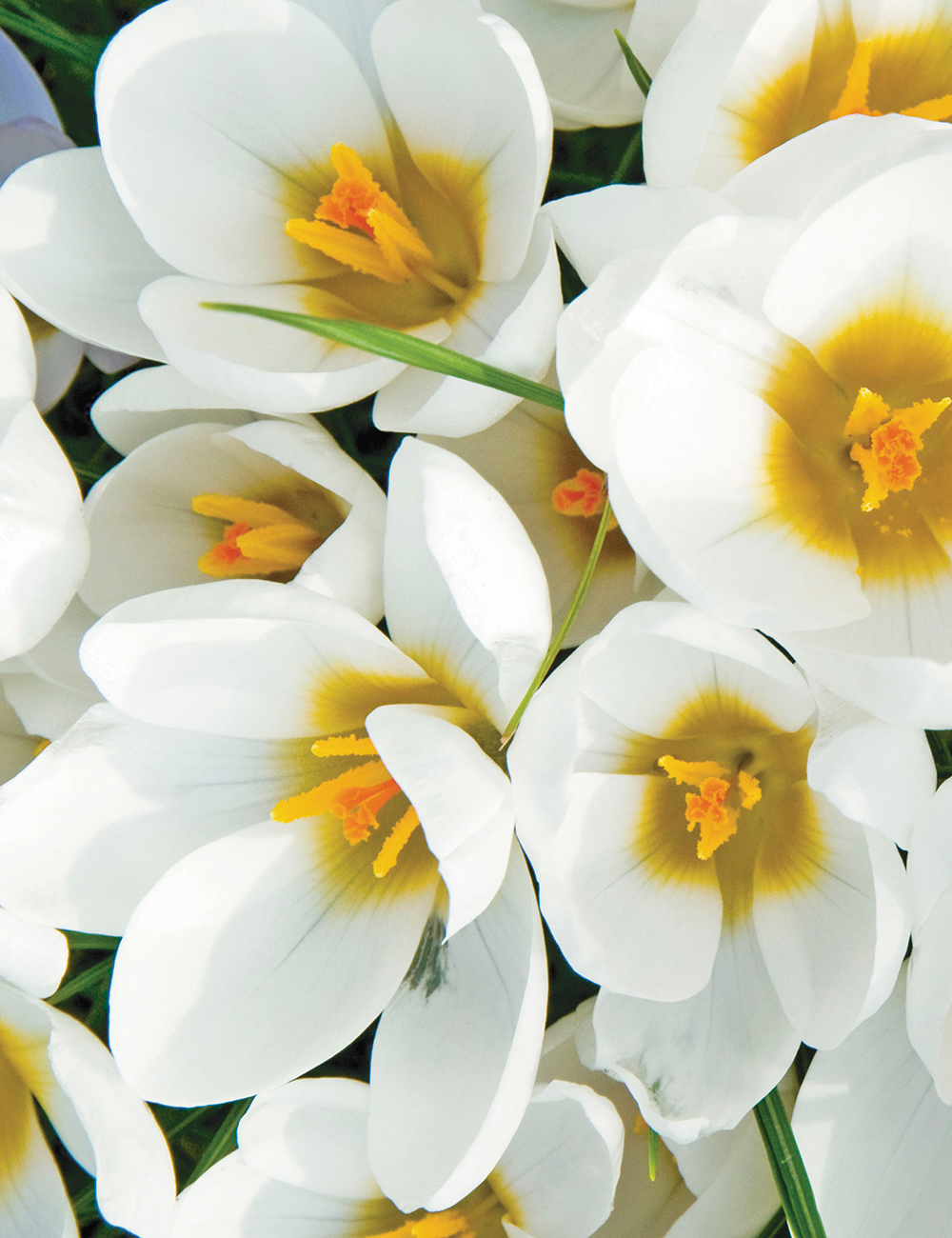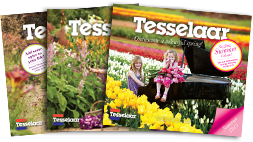
Dutch Crocus 'Jean D'Arc'
Pure genius.
This product is currently out of stock and unavailable.




Glamorous, white flowers with golden stamens, perfect for early season spectacle. The bright petals really catch the eye.
These dainty and delightful flowers are among the first of the spring blooms to open (or the last of winter, depending on where you live), unfurling just after the species Crocus and Galanthus.
Once established, these charming beauties can produce up to four flowers per bulb. Dutch Crocus blooms are the largest of the Crocus family, and they are one of the easiest to grow.
Choose a relatively sunny spot with well drained soil. Dutch Crocus will tolerate light shade, such as under deciduous trees, especially in more temperate zones where they will have winter sun and then protection from the hot summer rays. The petals only open with sun so you will need to ensure they have some of that.
Dutch Crocus grow best in Cool to Temperate climates as they love a cold winter. They look good in rockeries, beds and pots. A planting in a lawn area, such as beneath a deciduous tree will really create the wow factor. For this type of planting we think they look best when planted in little groups – three to a hole makes for a nice display – you can add other small bulbs such as mini daffs, Muscari or Galanthus to the area too. Thankfully the lawn does not grow very fast at that time of year and, because the foliage takes around five weeks to fade and you shouldn't mow it until it dies back. We mow a border around our patch which makes the whole thing appear like a feature as they fade.
The bulbs can be left in the ground if they are protected from the hot summer sun, and have good drainage, this is known as naturalising. If you allow them to naturalise like this, you can dig and divide them after four or five years. In an exposed position, to protect the bulbs from summer sun you could add mulch, grow them in combination with perennials or beneath deciduous trees.
We advise you protect new growth from slugs and snails and to fertilise annually in winter/spring.
Did you know, bees sometimes use Crocus flowers for overnight stays? They bed down in the pollen rich flowers which close at dusk, and when they reopen at dawn, the bee emerges, pollen laden, well rested bee and ready to start the day.
Supplied as: Bulbs
Size: na
| Code | CRDJA |
|---|---|
| Botantical name | Crocus vernus |
| Height | 8-12cm |
| Width | 5cm |
| Flowers | Late winter to early spring |
| Climate | Cool to Mediterranean |
| Availability | Australia wide |
| Frost hardiness | Hardy |
| Aspect | Full Sun to Light Shade |
| Supplied as | Bulbs |
| Size | na |
| Water needs | 1 |

